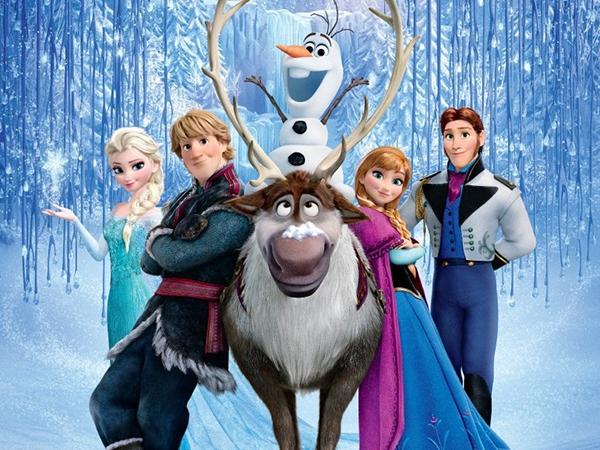When the idea of a Disney movie comes to mind, I am automatically drawn to an unrealistic version of reality – a world in which often, dainty princesses are reliant on dominant male figures, ‘Prince Charmings’, to save them.
Take examples of classic Disney flicks. Sleeping Beauty waited for true love’s kiss to awaken her from her eternal slumber. Snow White needed the same to save her from ingested poison by an evil witch. Cinderella was taken out of a life of poverty and mistreatment by a wealthy, handsome prince.
However, much to my surprise and (yes, excitement), the new Disney movie Frozen breaks away from such traditional standards. A loose retelling of Hans Christian Andersen’s “The Snow Queen”, it follows the misfortunes of youthful Queen Elsa and her sister Princess Anna, the former of whom is born with the power to control ice in addition to freezing everything she touches. As one might imagine, this brings immense difficulty to Elsa’s life, as she is reminded from a young age that “great power is accompanied by great danger”.
Without revealing too much, Elsa one day unknowingly freezes her city of Arendelle while running away, putting her people in grave danger. It is up to her younger sister, Princess Anna, to save the city with a little bit of help from a male companion and a quirky, amiable snowman.
Much like one of my personal favorite Disney films – Mulan – which also happens to be an anomaly in the industry’s repertoire, Frozen concedes the notion that women are indeed capable of great things, and saving doesn’t always have to be a “man’s job.”
Frozen offers impressionable girls, a major fan base for Disney, valuable life lessons that are often ignored in overly-romanticized society today: don’t make rash decisions, value your family above all else, and relationships are unnecessary to determine one’s worth. It also alludes to a rather common theme that can be forgotten: love sometimes comes from the most unexpected places.
Additionally, a much more accurate version of what many deviant male figures (“sweet talkers”, as my dad dubs them) is portrayed – much to the satisfaction of many girls I talked to. “I was happy that Frozen showed that a lot of guys aren’t always who they seem to be, and a lot of the time girls need to be more careful on the dating scene,” said CCHS junior, Riley Permito.
Make no mistake, the same is often true for women, but Frozen is a Disney film, after all, and somewhat keeping with the industry’s standard in catering to the most prevalent audiences, the protagonist is a strong, spirited, lovable female.
With its refreshing storyline complete with endearing characters, humorous one-liners and catchy musical numbers to tie it all together, the movie has grossed over $250 million in its five-week run, making it Disney’s biggest-grossing non-Pixar animated feature outside of The Lion King. While deviating from the usual themes, Frozen maintains the charm and appeal of feel-good Disney films, offering audiences of all ages an enchanting 108-minute escape from reality.






















































